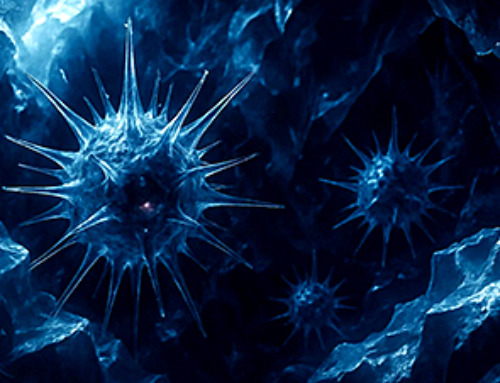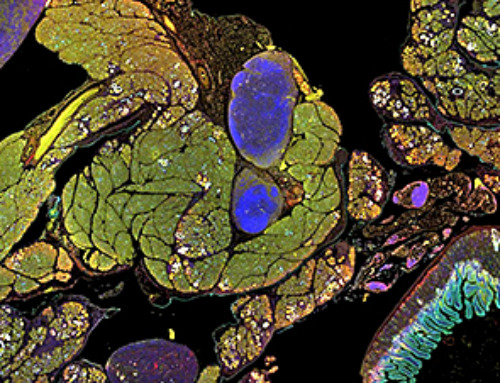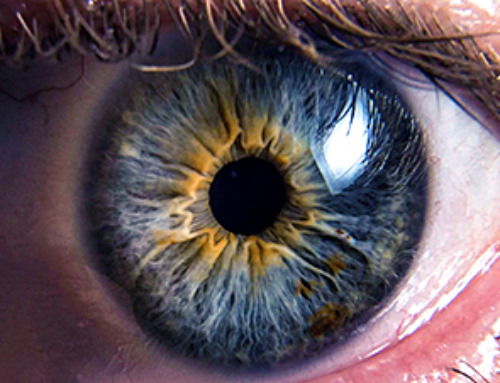From squabbling over who booked a disaster holiday to differing recollections of a glorious wedding, events from deep in the past can end up being misremembered. But now researchers say even recent memories may contain errors.
Scientists exploring our ability to recall shapes say people can make mistakes after just a few seconds – a phenomenon the team have called short-term memory illusions.
“Even at the shortest term, our memory might not be fully reliable,” said Dr Marte Otten, the first author of the research from the University of Amsterdam. “Particularly when we have strong expectations about how the world should be, when our memory starts fading a little bit – even after one and a half seconds, two seconds, three seconds – then we start filling in based on our expectations.”
While this had previously been put down to participants mis-seeing the shape, Otten and colleagues had doubts.
“We thought that they are more likely to be a memory effect. So you saw it correctly, but as soon as you commit it to memory stuff starts going wrong,” said Otten.
To investigate further, the researchers carried out four experiments.
In the first, participants were screened to ensure they were able to complete basic visual memory tasks before being presented with a circle of six or eight letters, one or two of which were mirror-image forms.
After a matter of seconds, participants were shown a second circle of letters which they were instructed to ignore – this acted as a distraction. They were then asked to select, from a series of options, a target shape that had been at particular location in the first circle, and rate their confidence in this choice.
The results from 23 participants who frequently reported high confidence in their answers revealed the most common mistake was selecting the mirrored form of the target shape. However, this occurred more often when the target shape itself was a mirrored letter. Indeed, participants stated they had seen a real letter in 37% of cases when they had been shown a mirrored letter, compared with 11% of cases for the reverse scenario.
The number of errors rose as the delay period, or level of distraction, in the experiment increased – but only where the target shape was a mirrored letter.
This, the researchers say, indicates the errors are down to mistakes not in how participants perceived the shapes but in their short-term memory, given the perception itself should not deteriorate over time.
They add that the high confidence with which participants reported their answers also rules out the possibility the results are simply down to participants guessing.
The findings were confirmed by results from three similar experiments involving a total of 348 participants.
The team say they are now hoping to investigate whether similar effects hold in real-world situations, and for other types of recollection.
Indeed, Otten noted that details of speech were rapidly replaced by a general meaning of the sentence.
“The bigger effects when it comes to social expectations might be intonation, [for example] ‘oh, she said that in a really angry and upset voice,’ right? Whereas maybe the intonation wasn’t that, but it’s just coloured quickly in your memory based on your assumptions about how women are,” she said.
News
Studies detail high rates of long COVID among healthcare, dental workers
Researchers have estimated approximately 8% of Americas have ever experienced long COVID, or lasting symptoms, following an acute COVID-19 infection. Now two recent international studies suggest that the percentage is much higher among healthcare workers [...]
Melting Arctic Ice May Unleash Ancient Deadly Diseases, Scientists Warn
Melting Arctic ice increases human and animal interactions, raising the risk of infectious disease spread. Researchers urge early intervention and surveillance. Climate change is opening new pathways for the spread of infectious diseases such [...]
Scientists May Have Found a Secret Weapon To Stop Pancreatic Cancer Before It Starts
Researchers at Cold Spring Harbor Laboratory have found that blocking the FGFR2 and EGFR genes can stop early-stage pancreatic cancer from progressing, offering a promising path toward prevention. Pancreatic cancer is expected to become [...]
Breakthrough Drug Restores Vision: Researchers Successfully Reverse Retinal Damage
Blocking the PROX1 protein allowed KAIST researchers to regenerate damaged retinas and restore vision in mice. Vision is one of the most important human senses, yet more than 300 million people around the world are at [...]
Differentiating cancerous and healthy cells through motion analysis
Researchers from Tokyo Metropolitan University have found that the motion of unlabeled cells can be used to tell whether they are cancerous or healthy. They observed malignant fibrosarcoma [...]
This Tiny Cellular Gate Could Be the Key to Curing Cancer – And Regrowing Hair
After more than five decades of mystery, scientists have finally unveiled the detailed structure and function of a long-theorized molecular machine in our mitochondria — the mitochondrial pyruvate carrier. This microscopic gatekeeper controls how [...]
Unlocking Vision’s Secrets: Researchers Reveal 3D Structure of Key Eye Protein
Researchers have uncovered the 3D structure of RBP3, a key protein in vision, revealing how it transports retinoids and fatty acids and how its dysfunction may lead to retinal diseases. Proteins play a critical [...]
5 Key Facts About Nanoplastics and How They Affect the Human Body
Nanoplastics are typically defined as plastic particles smaller than 1000 nanometers. These particles are increasingly being detected in human tissues: they can bypass biological barriers, accumulate in organs, and may influence health in ways [...]
Measles Is Back: Doctors Warn of Dangerous Surge Across the U.S.
Parents are encouraged to contact their pediatrician if their child has been exposed to measles or is showing symptoms. Pediatric infectious disease experts are emphasizing the critical importance of measles vaccination, as the highly [...]
AI at the Speed of Light: How Silicon Photonics Are Reinventing Hardware
A cutting-edge AI acceleration platform powered by light rather than electricity could revolutionize how AI is trained and deployed. Using photonic integrated circuits made from advanced III-V semiconductors, researchers have developed a system that vastly [...]
A Grain of Brain, 523 Million Synapses, Most Complicated Neuroscience Experiment Ever Attempted
A team of over 150 scientists has achieved what once seemed impossible: a complete wiring and activity map of a tiny section of a mammalian brain. This feat, part of the MICrONS Project, rivals [...]
The Secret “Radar” Bacteria Use To Outsmart Their Enemies
A chemical radar allows bacteria to sense and eliminate predators. Investigating how microorganisms communicate deepens our understanding of the complex ecological interactions that shape our environment is an area of key focus for the [...]
Psychologists explore ethical issues associated with human-AI relationships
It's becoming increasingly commonplace for people to develop intimate, long-term relationships with artificial intelligence (AI) technologies. At their extreme, people have "married" their AI companions in non-legally binding ceremonies, and at least two people [...]
When You Lose Weight, Where Does It Actually Go?
Most health professionals lack a clear understanding of how body fat is lost, often subscribing to misconceptions like fat converting to energy or muscle. The truth is, fat is actually broken down into carbon [...]
How Everyday Plastics Quietly Turn Into DNA-Damaging Nanoparticles
The same unique structure that makes plastic so versatile also makes it susceptible to breaking down into harmful micro- and nanoscale particles. The world is saturated with trillions of microscopic and nanoscopic plastic particles, some smaller [...]
AI Outperforms Physicians in Real-World Urgent Care Decisions, Study Finds
The study, conducted at the virtual urgent care clinic Cedars-Sinai Connect in LA, compared recommendations given in about 500 visits of adult patients with relatively common symptoms – respiratory, urinary, eye, vaginal and dental. [...]





















